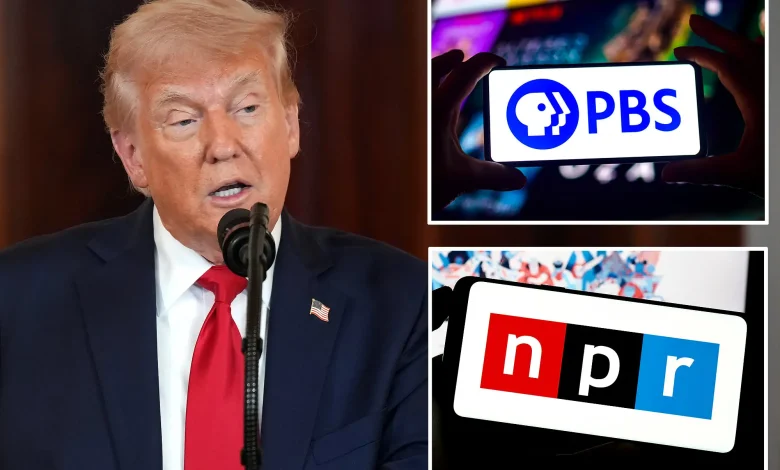Trump Signs Executive Order to Halt Federal Funding for NPR and PBS

In a move that has sent shockwaves through the media landscape, U.S. President Donald Trump has signed an executive order to block all federal funding for the Public Broadcasting Service (PBS) and National Public Radio (NPR).
The order, signed Thursday evening, accuses both organizations of engaging in “biased and partisan news coverage” and directs the Corporation for Public Broadcasting (CPB)—the nonprofit responsible for distributing federal funds to public broadcasting entities—to cease financial support for PBS and NPR.
Under the terms of the executive order, the CPB is instructed to “cease direct funding” to both PBS and NPR “to the maximum extent allowed by law.” The order also emphasizes that the CPB should “decline to provide future funding” to these organizations, signaling a dramatic shift in how taxpayer dollars are allocated to public broadcasting in the U.S.
The decision to block funding follows long-standing criticism from President Trump and his supporters, who have repeatedly accused NPR and PBS of biased reporting that favors liberal viewpoints.
In a statement, Trump’s administration argued that the organizations’ coverage does not reflect a balanced perspective, and that federal resources should not be used to support media outlets that the administration considers to be politically partisan.
Both NPR and PBS, which rely on government funding as a crucial part of their operational budgets, have yet to publicly comment on the order. The BBC has reached out to both media organizations for a response.
This latest executive action is part of the Trump administration’s broader efforts to reshape federal support for public services and institutions that it deems politically biased.
Critics of the president’s decision argue that blocking funding for NPR and PBS could undermine the ability of these organizations to provide independent, high-quality journalism to the public, especially in an era where trust in mainstream media outlets has become a contentious issue.
The move to defund NPR and PBS is likely to spark further debates about the role of government in funding public media, with supporters of public broadcasting arguing that it serves as an essential counterbalance to commercial news outlets and provides vital information to underserved communities.
The full impact of the executive order remains to be seen, as NPR and PBS now face an uncertain future regarding their reliance on federal funding.
As the order unfolds, the media and public alike will closely monitor the reaction of Congress, which ultimately holds the power to approve or reverse such significant shifts in federal funding policy.





